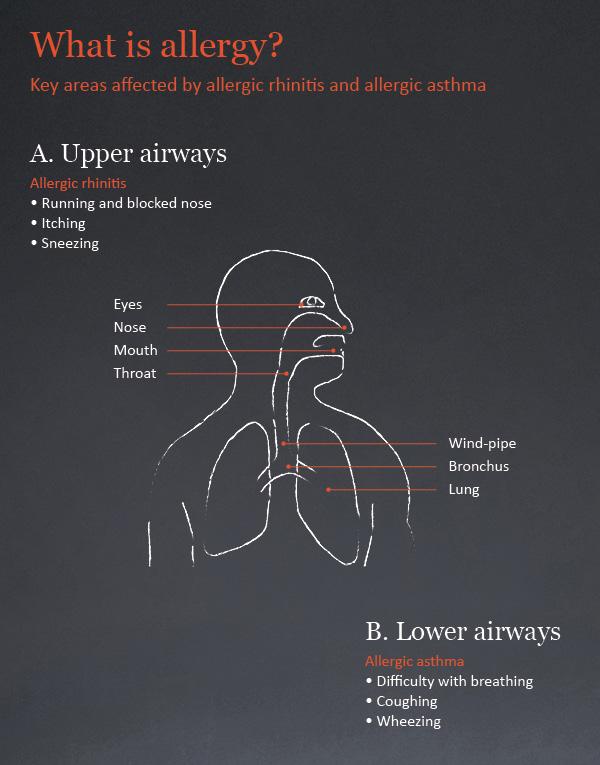Just like allergic rhinitis, allergic asthma is a condition that can be triggered by exposure to particular allergens, such as grass pollen, tree pollen, or house dust mites.
Whereas allergic rhinitis causes inflammation and irritation in the eyes, nose and the upper airway, allergic asthma primarily affects the lower airways. Symptoms of allergic asthma include wheezing, chest tightness, shortness of breath and persistent coughing.
Asthma development more likely among allergy sufferers
Studies show that allergic rhinitis and allergic asthma are closely linked, with nearly half of respiratory allergy sufferers experiencing both.
Indeed, many people with allergic rhinitis go on to develop allergic asthma.
Treating allergy and asthma together
As a result, evidence increasingly suggests that, rather than being two separate conditions, allergic rhinitis and allergic asthma are caused by the same allergy and that treating – the allergy – can be beneficial for both conditions.

